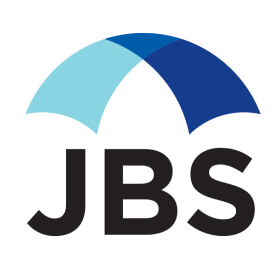Data Breach Lawsuits & Investigations
Every year, hundreds of millions of people are affected by data breaches that can leave them vulnerable to identity theft, credit damage, reputational harm and more.
Class action lawsuits remain one of the strongest ways to hold companies accountable for leaving consumers’, employees’ and patients’ private information unprotected. Indeed, some have resulted in multi-million-dollar settlements on behalf of those who – through no fault of their own – had their information stolen and, in the worst cases, even published on the dark web.
When a data breach lawsuit is successful, it can also require the company at fault to implement new security protocols to ensure the information it is entrusted with – medical, financial and otherwise – stays safe.
Got a data breach notice?
Scroll down to see the list of data breaches attorneys working with ClassAction.org are currently investigating. If you see one that looks familiar, click through to learn more about the breach and what you can do to potentially help get a class action lawsuit started.
And remember – don’t throw your notice away! It essentially serves as proof that you were affected by a specific security incident and can be vital if you choose to take legal action for the harm you suffered.
We update this page often with new data breach investigations, so make sure to bookmark it and come back regularly. You can also sign up for our free newsletter, which is sent on a weekly basis and includes our latest data breach alerts.
Received a notice but don’t see the breach listed here? Tell us about it using this form.
Featured Data Breaches
North Atlantic States Carpenters Benefit Funds has reported an August 2025 data breach that may have affected employees, participants and beneficiaries.
AltaMed Health Services Corporation Data Breach
February 2026
AltaMed Health Services Corporation, a provider of health and human services in Southern California, has announced a data breach that occurred in December 2025.
The Counseling Center of Wayne and Holmes Counties, an Ohio-based mental health service provider, reported a March 2025 data breach impacting more than 83,000 people.
Neurological Associates of Washington Data Breach
January 2026
Neurological Associates of Washington, a Seattle-area medical group, has announced a December 2025 data breach that may have exposed personal and health information.
VillageCareMAX Data Breach
January 2026
VillageCareMAX has reported that members' personal and health-related information was compromised in a data breach affecting third-party vendor TMG Health.
ANKA Data Breach
January 2026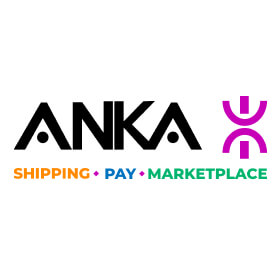
The operator of ANKA, a platform for African e-commerce businesses, has reported a data breach involving a system used to store customer information.
Recent Data Breaches
Received a notice but don’t see the breach listed here? Tell us about it using this form.
North East Medical Services Data Breach
February 2026
North East Medical Services, a community health center based in San Francisco, is notifying individuals about a data breach discovered in October 2025.
Cedar Point Health Data Breach
February 2026
Western Colorado-based medical provider Cedar Point Health is notifying those affected by a June 2025 data breach, which potentially exposed medical, financial and personal information.
WIRX Pharmacy Data Breach
February 2026
More than 20,000 individuals are reportedly impacted by a December 2025 data breach at WIRX Pharmacy, which serves injured workers.
AltaMed Health Services Corporation Data Breach
February 2026
AltaMed Health Services Corporation, a provider of health and human services in Southern California, has announced a data breach that occurred in December 2025.
North Atlantic States Carpenters Benefit Funds has reported an August 2025 data breach that may have affected employees, participants and beneficiaries.
Triad Radiology Associates Data Breach
February 2026
North Carolina-based Triad Radiology Associates has reported that a 2025 data breach may have exposed personal and medical information.
Managed Care Advisors/Sedgwick Government Solutions is notifying individuals affected by a November 2025 data breach that exposed personal and medical information.
The Counseling Center of Wayne and Holmes Counties, an Ohio-based mental health service provider, reported a March 2025 data breach impacting more than 83,000 people.
UA Sprinkler Fitters Local 669 Joint Apprenticeship and Training Committee Data Breach
February 2026
The UA Sprinkler Fitters Local 669 Joint Apprenticeship and Training Committee (JATC) is notifying individuals about a May 2024 data breach that potentially exposed personal information.
Catalyst RCM Data Breach
February 2026
Catalyst RCM, which provides medical coding and billing services to diagnostic laboratories, reported a data breach that exposed medical and financial information.
Precipio, Inc. Data Breach
January 2026
Precipio, a healthcare biotechnology company based in New Haven, Connecticut, reported a data breach that potentially exposed personal and medical information.
EyeCare Partners, LLC Data Breach
February 2026
EyeCare Partners, which operates a network of ophthalmology and optometry practices, has reported a data breach discovered in late January 2025.
NJCRIB, which regulates workers' compensation insurance in New Jersey, is notifying individuals affected by a mid-2025 data breach that exposed names and Social Security numbers.
Evolve Mortgage Services Data Breach
February 2026
Evolve Mortgage Services has reported a September 2025 data breach that compromised Social Security numbers, financial information and more.
MedRevenu Data Breach
February 2026
MedRevenu, which provides billing services to healthcare providers, reported a data breach that exposed personal, medical and financial information.
Neurological Associates of Washington Data Breach
January 2026
Neurological Associates of Washington, a Seattle-area medical group, has announced a December 2025 data breach that may have exposed personal and health information.
The Phia Group, LLC Data Breach
January 2026
The Phia Group, which provides healthcare cost management services, has reported a July 2024 data breach that may have exposed personal and medical information.
Center for Life Resources Data Breach
January 2026
Center for Life Resources, based in Brownwood, Texas, has reported that a November 2025 data breach may have exposed personal and protected health information.
Visiting Nurse Association of Texas Data Breach
January 2026
Visiting Nurse Association of Texas, which provides home healthcare and Meals on Wheels services in North Texas, recently reported a data breach to the Texas attorney general.
The Arthur Ashe Institute for Urban Health, a Brooklyn-based nonprofit, has announced a data breach impacting Social Security numbers and other information.
GiaCare Data Breach
January 2026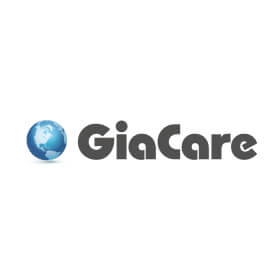
GiaCare, a healthcare staffing firm that supports multiple government agencies, was impacted by a data breach at third-party vendor Gladinet CentreStack.
Med Atlantic Data Breach
January 2026
Med Atlantic, Inc., which provides services to Virginia Urology, has announced a November 2025 data breach that may have exposed personal and health information.
Reproductive Medicine Associates of Michigan Data Breach
December 2025
Reproductive Medicine Associates of Michigan (RMA of Michigan) is investigating a data breach discovered in October 2025 that potentially exposed health information.
Bankers Healthcare Group Data Breach
January 2026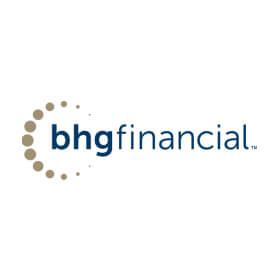
In January 2026, Bankers Healthcare Group, LLC, also known as BHG Financial, reported a data breach that potentially exposed personal information.
VillageCareMAX Data Breach
January 2026
VillageCareMAX has reported that members' personal and health-related information was compromised in a data breach affecting third-party vendor TMG Health.
Mid Michigan Medical Billing Service Data Breach
January 2026
Mid Michigan Medical Billing Service, a revenue cycle management company in the healthcare industry, has reported a March 2025 data breach that impacted over 28,000 people.
Monroe University Data Breach
January 2026
New York-based Monroe University has announced a data breach that may have exposed the personal information of more than 320,000 individuals.
ANKA Data Breach
January 2026
The operator of ANKA, a platform for African e-commerce businesses, has reported a data breach involving a system used to store customer information.
Associated Radiologists of the Finger Lakes Data Breach
December 2025
Associated Radiologists of the Finger Lakes, which has several locations near Elmira, New York, has reported an October 2025 data breach that exposed personal and medical information.
Harmony Health has reported that personal information may have been exposed in a data breach affecting third-party vendor TriZetto Provider Solutions.
Open Door Community Health Centers Data Breach
January 2026
Open Door Community Health Centers, a California healthcare provider, is notifying patients affected by a data breach at third-party vendor TriZetto Provider Solutions.
Santa Rosa Community Health Data Breach
January 2026
California-based Santa Rosa Community Health has reported that a data breach involving a third-party vendor may have exposed patient information.
Vida Y Salud-Health Systems Data Breach
January 2026
Vida Y Salud-Health Systems is notifying patients about an October 2025 data breach that potentially exposed personal and medical information.
VeraBank Data Breach
December 2025
VeraBank has reported that some of its customers' information may have been compromised in a data breach affecting third-party vendor Marquis Software Solutions.
Sentinel Security Life Insurance Company and Atlantic Coast Life Insurance Company Data Breach
December 2025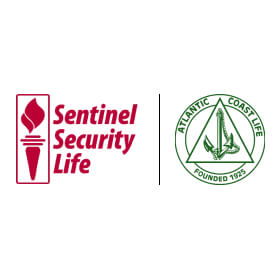
Insurers Sentinel Security Life and Atlantic Coast Life have reported an April 2025 data breach potentially impacting personal and medical information.
Energy Capital Credit Union Data Breach
December 2025
Houston-based Energy Capital Credit Union is notifying individuals affected by a late 2024 data breach that potentially exposed personal and financial information.
Baker University Data Breach
December 2025
Baker University, located in Baldwin City, Kansas, has reported that a December 2024 data breach potentially impacted the private information of more than 53,000 individuals.
Wilmington Community Clinic Data Breach
December 2025
Wilmington Community Clinic, a California-based primary care practice, has reported a data breach affecting sensitive personal and health information.
Awakenings Counseling Data Breach
November 2025
Awakenings Counseling, a psychotherapy center with offices in Raleigh and Greensboro, North Carolina, has reported a data breach affecting roughly 17,800 people.
Morton Drug Company Data Breach
November 2025
Morton Drug Company, a Wisconsin-based pharmacy services provider, has reported an August 2025 data breach impacting more than 40,000 people.
CoVantage Credit Union Data Breach
November 2025
Wisconsin-based CoVantage Credit Union has disclosed an August 2025 data breach involving third-party vendor Marquis Software Solutions.
Avosina Healthcare Solutions Data Breach
November 2025
Avosina, a revenue cycle and IT management firm, is sending notice of a data breach affecting patients of SomnoSleep Consultants in northern Virginia.
Norway Savings Bank Data Breach
November 2025
Norway Savings Bank, a mutual banking and financial services company based in Norway, Maine, has announced an August 2025 data breach involving third-party vendor Marquis.
Sun Valley Surgery Center, LLC Data Breach
September 2025
Las Vegas-based Sun Valley Surgery Center has reported that a data breach may have exposed Social Security numbers and other personal information.
Central Jersey Medical Center, Inc. Data Breach
November 2025
Central Jersey Medical Center patients may have had their personal information exposed in an August 2025 data breach.
Sedgebrook Data Breach
October 2025
Sedgebrook, a senior living community in Lincolnshire, Illinois, has reported a May 2025 data breach that exposed personal, medical and financial information.
Prosper Data Breach
September 2025
San Francisco-based fintech Prosper has reported a recent data breach involving customer and applicant details.
Lemonade Data Breach
April 2025
Lemonade reported that roughly 190,000 driver's license numbers may have been exposed due to an issue with the company's online car insurance application.
Coinbase Data Breach
May 2025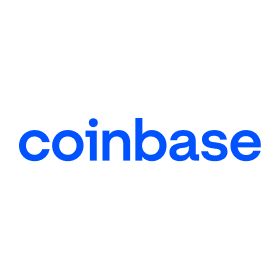
Crypto giant Coinbase recently reported that cybercriminals gained access to customers' personal information by bribing overseas support employees to copy data.
Avis Rent A Car System LLC Data Breach
September 2024
Avis Rent A Car System LLC is sending notice of an August 2024 data breach that may have exposed individuals’ personal and financial information.


Join the Newsletter
New cases and investigations, settlement deadlines, and news straight to your inbox.
Data Breach FAQs
What is a data breach?
A data breach is a cybersecurity incident whereby an unauthorized party or parties gain access to sensitive, protected and/or confidential information belonging to an individual or organization.
The information stolen or compromised in a data breach can include, but may not be limited to, names, email addresses, physical addresses, passwords, dates of birth, Social Security numbers, passport numbers, driver’s license numbers, credit card numbers, debit card numbers, CVV numbers, medical information, diagnoses, health insurance information, biometric data, and taxpayer ID numbers. Data breaches also may involve sensitive business information, trade secrets or national security matters.
The causes of a data breach, sometimes called a cyberattack, can include software vulnerabilities, email-based phishing attempts, ransomware, accidental disclosure, access improperly given to computer systems, a lack of encryption, or hacking perpetrated by cybercriminals.
I got a data breach notification. Does this definitely mean my info is being used fraudulently?
Not necessarily. When a company experiences a data breach, state law requires that it notify affected individuals. Receiving a letter does not automatically mean that your personal information is being used fraudulently – it just means your information was exposed in a data security incident and has the potential for being misused.
If your Social Security number is involved in a data breach, you’ll want to monitor and check your credit report and financial accounts for any signs of identity theft. Warning signs of identity theft can include withdrawals from your bank account that you can’t explain, missing bills or other mail, contact from debt collectors you don’t recognize, unfamiliar charges on your debit/credit cards, and unfamiliar accounts or charges on your credit report.
If your identity is in fact stolen from a data breach, report it to the Federal Trade Commission on IdentityTheft.gov and receive a personalized recovery plan.
To help protect yourself from identity theft, you can contact each of the three major credit bureaus—Equifax, Experian and TransUnion—to place a credit freeze on your credit report. A credit freeze will restrict access to your credit information and prevent anyone from opening a new credit account in your name.
Freezing your credit in the event of a data breach does not harm your credit score and will stay in place on your credit report until you decide to lift it.
In addition, you can also place a fraud alert on your credit reports, which alerts businesses to check with you before any new account is opened in your name. However, unlike a credit freeze, a fraud alert does not prevent businesses from seeing your credit report data, the FTC says.
Anyone who is concerned about identity theft can place an initial fraud alert on their credit report for free. To do this online, visit the Equifax, Experian or TransUnion website; you don’t have to contact all three. An initial fraud alert typically lasts for one year and can be renewed should a consumer opt to do so.
Another, more serious form of identity theft protection in the event of a data breach is an extended fraud alert, which, like an initial fraud alert, requires a business to contact you before any new credit is issued in your name. To create an extended fraud alert, you must have experienced identity theft and completed an FTC identity theft report or filed a police report.
An extended fraud alert will exist on your credit report for seven years, after which it can be renewed so long as an FTC identity theft or police report is resubmitted. An extended fraud alert can also be set up online through Equifax, Experian or TransUnion.
What should I do if I get a data breach letter?
If you get a data breach notice, make sure to read it closely. It should contain information on what happened, what information was involved, what the company is doing about it, steps you can take to protect yourself, and how you can get more information.
Some companies may offer free credit and/or identity theft monitoring for a period of time following a data breach, and the notice should include instructions on how to sign up. If you’re offered free monitoring, take advantage of it; signing up should not affect any legal claim you may have against the company.
Importantly, if you get a data breach letter, don’t throw it out! If you are interested in helping any of the investigations listed on this page, attorneys will want to see the letter you received.
Why do attorneys need to see my data breach notice?
Attorneys working with ClassAction.org are specifically looking to hear from people with a data breach notice because it essentially serves as proof that the individual was a victim of the incident and makes for a stronger legal claim.
So, I can sue over a data breach?
Yes. If your data was exposed in a security incident, you may be able to sue the company or companies responsible. Dozens of data breach class action lawsuits are filed each month, and this number only continues to increase. You can check out the proposed data breach class actions we’ve covered recently over on our newswire.
How do I know if a data breach letter is legitimate?
To verify whether a data breach notice letter you received is real, the first step is to Google the company name, along with the words “data breach.” More often than not, the search results, which may include news articles, will reveal whether the data breach letter in your possession stems from a real-world cyberattack.
You can also check ClassAction.org directly to see if we’ve reported on the data breach, though it’s important to note that we do not cover every incident.
If you are unsure of whether a data breach notice is legit, contact the company directly through a verified channel to confirm the data breach. Many times, companies post data breach notices on their websites.
Generally, a data breach notice you receive via email will come from a company or organization’s official email address and will usually address you by name.
Do not click on any links in the notice that may look suspicious or don’t match the company’s official website. Lastly, keep an eye out for spelling and grammar mistakes in a data breach notice, as they might indicate that the message is fake.
Can you give me an example of a data breach notification letter?
Absolutely. Here is an example of one sent to Forever 21 employees following a massive data breach that occurred in March 2023. This is the letter sent to consumers affected by the MAPFRE insurance data breach in late August 2023. In some cases, notices may be sent via email.
What if I never heard of the company that sent me a data breach notice?
It’s important to note that, in rare cases, you may not recognize the company sending the letter, but this does not mean it was sent in error.
For instance, a May 2023 data incident affecting a popular file transfer tool caused millions of individuals to have their information exposed. In this instance, many of the data breach letters were sent by a third-party vendor of the affected companies. For example, PBI Research Services sent this letter to customers of Corebridge Financial.
What if I threw my data breach notice out?
It’s important that, if you receive any data breach notice, you do not throw it out. If you’ve already done so, you may want to check the company’s website for their official notice of the breach – it should include the same information that was in your notice. You may also want to check the post for a dedicated number consumers can call with questions about the security incident. It’s worth a call to see if they can resend your notice, but this may not be possible.
What if I think I’m affected but haven’t received a notice?
Notices aren’t always sent immediately after a breach hits the news, so you may just have to be patient. Otherwise, you can check the company’s website to see if they’ve posted a notice about the breach – it may contain a number you can call with questions. They should, at the very least, be able to answer when notices are expected to go out and may also be able to confirm whether you were affected.
Be sure to bookmark our page and come back to it if you believe you’ve been affected by a data breach listed below but haven’t received a notice yet.
What kind of damages can I claim for a data breach?
In general, data breach victims can seek compensation for lost time responding to the incident, out-of-pocket costs related to the breach and loss of privacy.
Depending on the specifics of the data breach, out-of-pocket costs may include some of the following: money spent on preventative measures, such as identity theft and/or credit monitoring; service fees to replace stolen cards; money spent on credit reports and/or credit freezes; the costs associated with obtaining background checks or medical records; increased health insurance costs; and money lost via fraudulent transactions, fraudulent medical bills or stolen tax refunds.
Further damages may become available depending on the type of information exposed. For instance, if a person’s health data is leaked, they may be able to recover money for reputational damage if they are denied medical care or insurance coverage. Likewise, a person whose Social Security number is exposed may be able to recover money for damage to their credit.
How much can I claim in a data breach settlement?
How much you can claim in any data breach settlement will depend on a number of factors, including the specifics of the settlement, the amount of time you spent responding to the incident, the type and total amount of your out-of-pocket expenses, and how many claims are filed. There are never any guarantees as to whether a data breach lawsuit will be successful or how much they could provide to consumers; however, some of the largest data breach settlements obtained via class action lawsuits include a $350 million deal with T-Mobile and a $190 million deal with Capital One.
I’m looking for data breach class action settlements. Where can I find those?
We post class action settlements, including those involving data breaches, over on this page.
How do I know if I was part of a data breach?
If you were affected by a data breach, you should receive a notice via email or regular mail about the incident and what information may have been exposed. All 50 states require that businesses and governments alert consumers if their personal information is breached.
How do I prevent a data breach?
While it may not be possible to completely secure your sensitive information, some steps you can take to protect yourself from a data breach and its fallout include:
- Using strong, complex passwords, preferably a different one for each account;
- Regularly changing passwords;
- Using multi-factor authentication (MFA) when available;
- Encrypting your data;
- Updating your devices’ software regularly;
- Shopping with a credit card, as you may incur less liability in the event of fraudulent charges or if your account is hacked; and
- Consistently monitoring your accounts for fraud, including by setting up account alerts.
It can also be helpful to have a response plan should your personally identifiable information become compromised in a data breach or cyberattack.
Always be wary of unsolicited correspondence from companies with whom you have no relationship, and never give anyone remote access to your devices.
What is the leading cause of data breaches?
According to InfoSec Institute, the leading cause of data breaches is human error, which may involve privilege misuse, stolen credentials or social engineering, a tactic whereby hackers can bypass having to create their own access points by goading individuals with legitimate access to grant it for them. Other common causes of data breaches and cyberattacks include weak credentials, software vulnerabilities, malware, ransomware, DNS attacks, improper API configuration and excessive permissions.
Anything else I should know?
If you’re interested in starting a class action lawsuit, you should know that those who elect to serve as a lead plaintiff are generally entitled to what’s known as a “service award” – that is, an additional payment for their help with the case. Typically, the lead plaintiff in a data breach case does not need to be involved as much as they would in other types of lawsuits. Depositions in these types of class actions are rare, and little documentation and information – aside from the initial data breach notice – is needed.
Plus, if you elect to serve as a lead plaintiff, you can feel good that you’re working to hold a company legally accountable for failing to protect the private information of potentially hundreds of thousands of individuals.
What if there’s a data breach settlement?
In the event of a data breach lawsuit settlement, ClassAction.org will have the complete details over on our class action settlements page.




